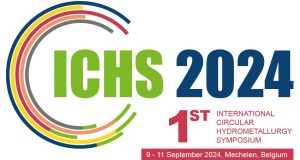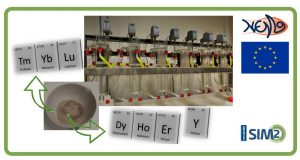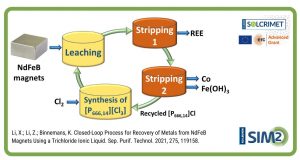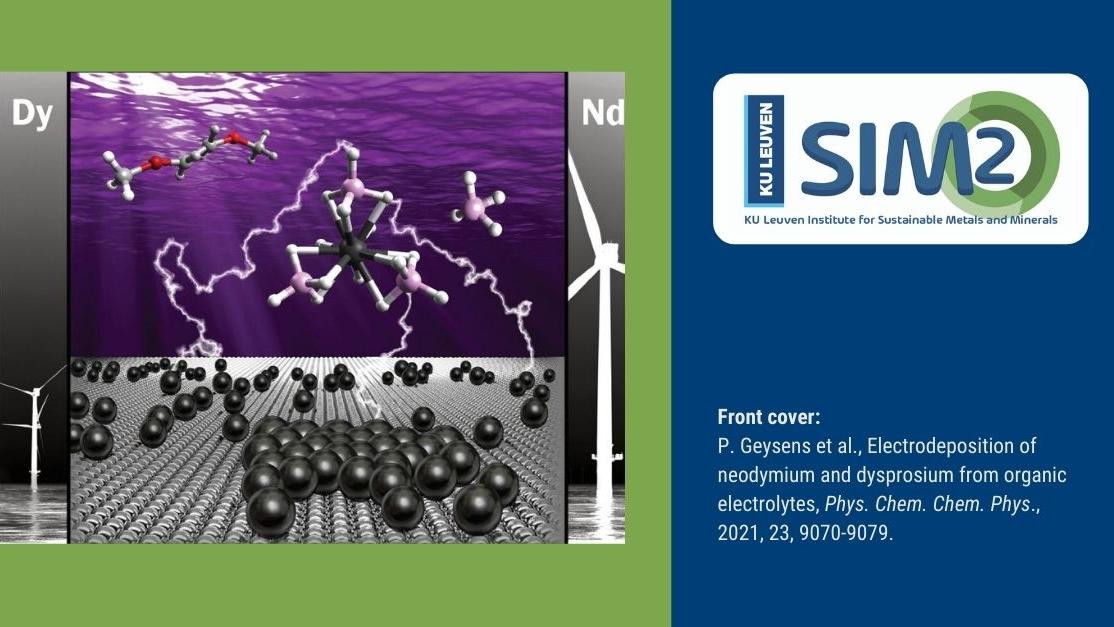The colleagues from TU Darmstadt and Fraunhofer IWKS in Germany present material-to-material (direct) recycling approaches for NdFeB magnet alloys. The paper is published in the Journal of Sustainable Metallurgy. This work is in line with the broader efforts of the EU research community to develop both direct and indirect recycling processes for EoL NdFeB magnets that are used in e-mobility, wind turbines and automated industrial machines. (Leuven, 28-3-2018)
Rationale
Rare earth permanent magnets are an integral part of many electrical and electronic devices as well as numerous other applications, including emerging technologies like wind power, electric vehicles, fully automated industrial machines, and robots. Due to their outstanding properties, magnets based on Nd–Fe–B alloys are often not substitutable by employing less critical material systems. The colleagues from TU Darmstadt and Fraunhofer IWKS now present material-to-material (direct) recycling approaches maintaining the magnet alloys and using them directly for a new magnet production loop. The recycled magnets compete well with those made from primary materials and have a much reduced environmental footprint; an important step regarding the shift towards a Green Economy.
Full reference TU Darmstadt/Fraunhofer paper
O. Diehl, M. Schönfeldt, E. Brouwer, A. Dirks, K. Rachut, J. Gassmann, K. Güth, A. Buckow, R. Gauß, R. Stauber, O. Gutfleisch, Towards an Alloy Recycling of Nd–Fe–B Permanent Magnets in a Circular Economy, Journal of Sustainable Metallurgy, https://link.springer.com/article/10.1007%2Fs40831-018-0171-7
Related articles
This paper is to be situated in the multiple research endeavours to develop both direct and indirect recycling schemes for EoL Nd-Fe-B magnets, as researched in EU projects like ITN EREAN, ETN DEMETER and NEOHIRE. Previous review articles on this topic can be found here:
- Y. Yang et al., REE Recovery from end-of-life NdFeB permanent magnet scrap: a critical review, Journal of Sustainable Metallurgy, 3(1), 2017, 122-149. https://link.springer.com/article/10.1007/s40831-016-0090-4
- K. Binnemans et al., Recycling of rare earths: a critical review, Journal of Cleaner Production, 51, 2013, 1-22. https://www.sciencedirect.com/science/article/pii/S0959652612006932
- A. Walton et al., The use of hydrogen to separate and recycle neodymium-iron-boron-type magnets from electronic waste, Journal of Cleaner Production, 104, 236-241, 2015 – https://www.sciencedirect.com/science/article/pii/S0959652615005806

Figure: Direct recycling approach targeted by TU Darmstadt & Fraunhofer IWKS

 European Training Network for the Design and Recycling of Rare-Earth Permanent Magnet Motors and Generators in Hybrid and Full Electric Vehicles (DEMETER)
European Training Network for the Design and Recycling of Rare-Earth Permanent Magnet Motors and Generators in Hybrid and Full Electric Vehicles (DEMETER)



